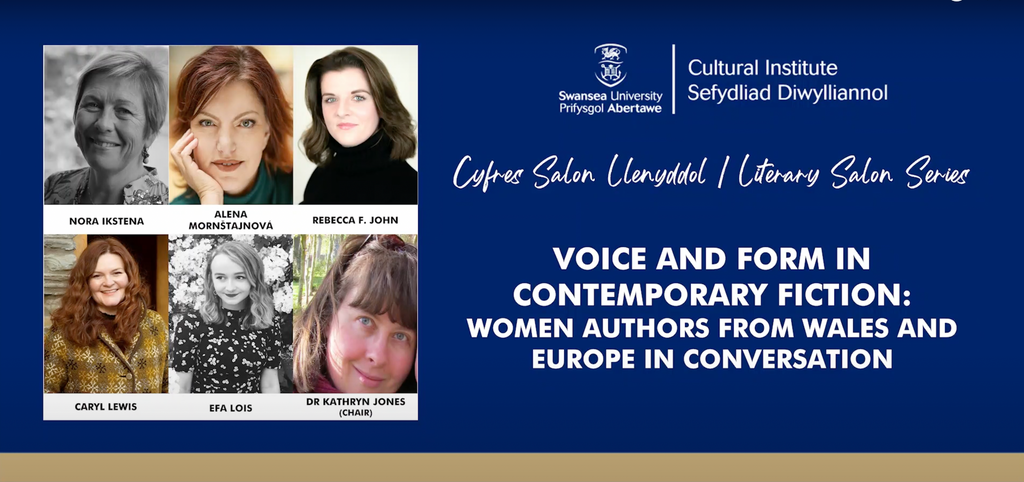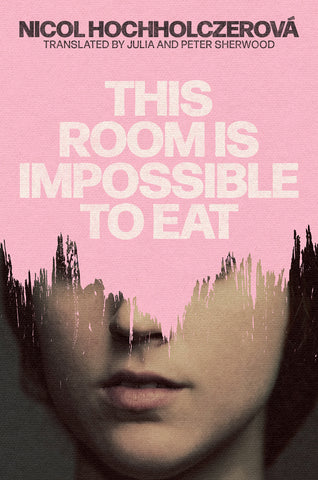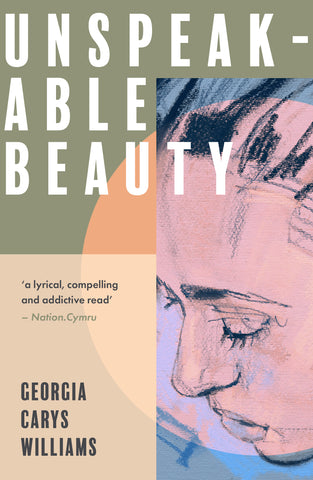Holly Porter reviews one of the latest events to come from Swansea University’s Cultural Institute’s Literary Salon Series, ‘Voice and Form in Contemporary Fiction: Women Authors from Wales and Europe in conversation’ and explores where these critically-acclaimed female authors fit within the literature of today.
For this online event, the Cultural Institute at Swansea University assemble five of the most distinguished female authors of the contemporary, non-English literary world. Ironically though, often these writers choose to focus on the past in their works, from Alena Mornštajnová’s novel Hana (translated by Parthian in 2020) to Efa Lois’ ‘psychedelic’ depictions (as described by Dr Kathryn Jones, who chaired the event) of the history of Welsh witches. This makes for an extraordinary discussion on what it means to fictionalise the past in a modern climate.
Rebecca F. John, a Welsh author of the award-winning short story collection Clown’s Shoes (published by Parthian in 2015), ignites the conversation with a reading from her upcoming novel, The Empty Greatcoat. This book builds upon Rebecca’s historical dwellings in Clown’s Shoes, with the novel being set amidst the Gallipoli campaign of the First World War. What is even more interesting about the conception of this story is that it was born from the author recovering the diary of a distant relative, which then inspired the premise of the book. Rebecca expands upon her desire to retreat to history when writing fiction, finding that it often makes her character’s richer and fuller as the narrative is not cluttered by modern ‘necessities’, and that a different unfamiliar backdrop can deliver unique perspectives on contemporary issues.
Fellow Welsh creator Efa Lois also merges the modern with the historical, with the focal point of her discussion being the mythology of Welsh witches. This is accompanied by her own modernised illustrations of the witches, depicting them in luminous colours, of a variety of body types and to be reminiscent of the infamous ‘Flower Power Era’ of the 1960s, hence eternalising the myth of these Welsh women. Welsh novelist Caryl Lewis, on the other hand, works on dispelling myth, this time of the Welsh landscape as a pastoral haven in her works, declaring that she sees the reality of its ‘brutality’ living on a Welsh farm and being surrounded by the landscape constantly. This notion is portrayed in her novel Martha, Jack and Shanco (translated by Parthian in 2007), which is about a family held captive by the hardship of rural south-west Wales life, as Caryl tries to unravel this false yet collective memory of the Welsh sense of place.
The two European authors to panel this event, Alena Mornštajnová (Czech Republic) and Nora Ikstena (Latvia), tackle perspectives of historical traumas that have often been retold from an Anglocentric POV in film and literature (e.g. John Boyne’s, The Boy in the Striped Pyjamas). Alena Mornštajnová’s chosen reading of Hana ends with the narrator fearing that the titular character will somehow disappear ‘only leaving a pile of black clothes behind’, which is profound considering that Hana is a survivor of the Holocaust, yet is struggling to embody this title. Alena explains how she never set out to tackle such a heavy historical event, but after investigating the history of her hometown and realising the large Jewish community that resided there, much like Rebecca, Alena wanted to immortalise a struggle that had been once forgotten due to her ancestral relation to it. Nora Ikstena tackles the effects of Soviet rule in her novel Soviet Milk, a historical period often obscured from mainstream culture, unlike the Holocaust. Nora was enthusiastic to talk about the 30+ translations of her story, crediting the translators of her book and stating that it was they who made each translation unique to their culture and thus, the story accessible to more people than she believed was possible.
Considering that each author has a different first language, it was refreshing to see the women reading their works in their preferred tongue preceding the English version, with Alena reading from Hana in Czech, Caryl reading in Welsh and so on. English was then used to facilitate their conversations so that everyone could be included in these discussions – nevertheless, it was ensured that the original version of their books in their first language was not overlooked.
These five women breathe new life into forgotten histories or concealed narratives with their works to create stories that do not alienate a non-English audience from events that may affect them, perhaps more so than an English audience. However, the authors’ ability to resurrect the past is sometimes obstructed by language. This is why translation is such an important part of literature, because it prevents language from being a barrier to accessing the wider world that surrounds us and, therefore, allows non-Anglocentric cultures to elevate historical discourses.
Watch the event in full here.
Check out our Talking Translation project here to find out more about the influence of translation on contemporary literature.



